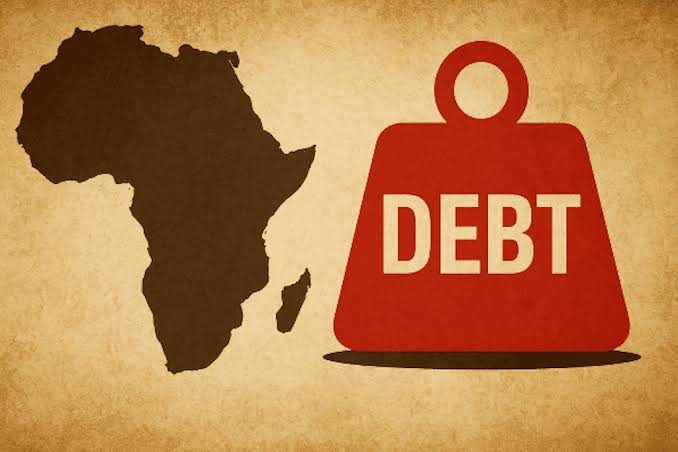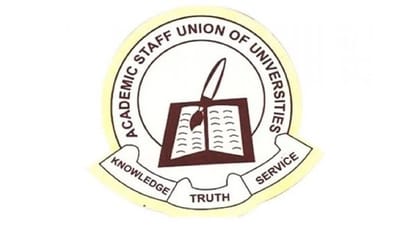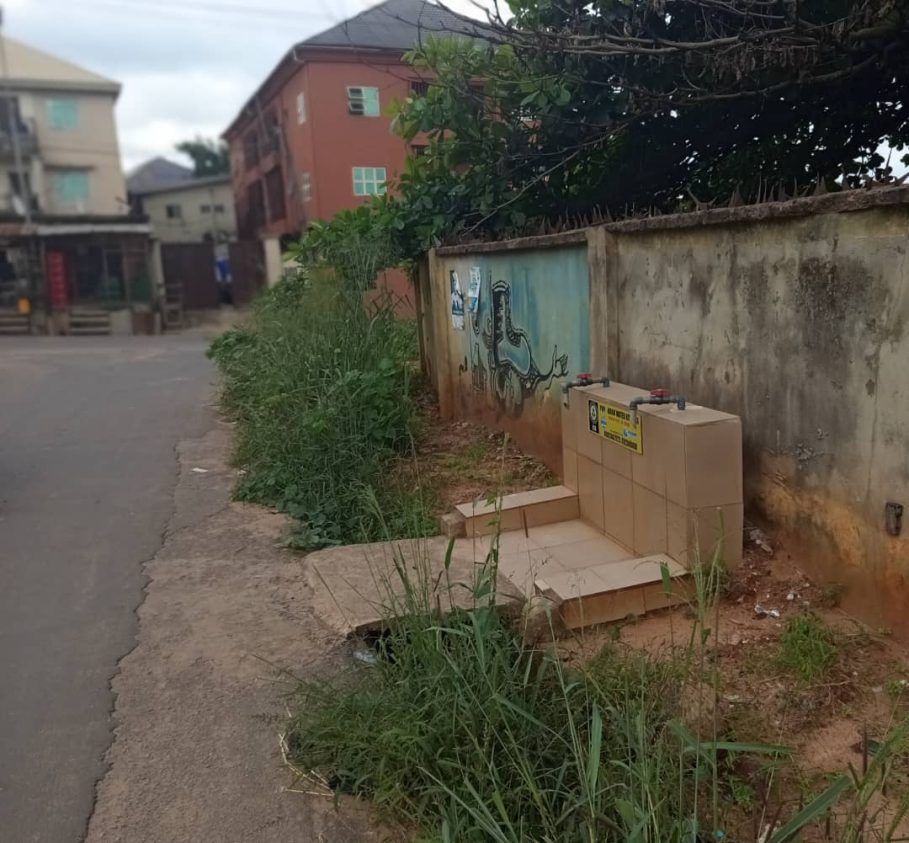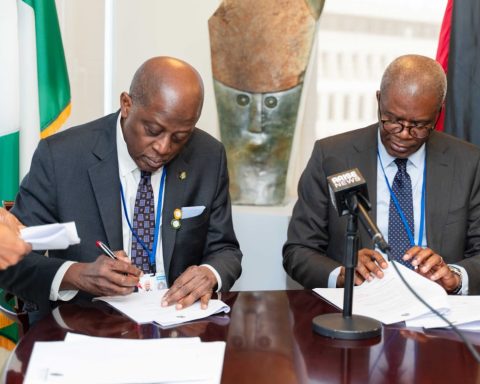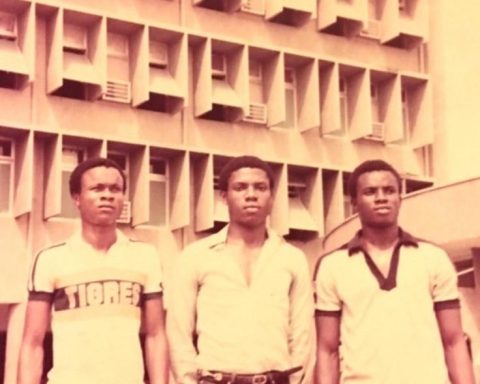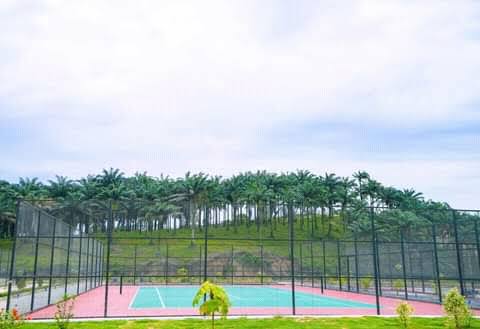Reflecting on the current state of Africa’s economy, I am compelled to sound the alarm on the escalating debt crisis that threatens to strangle the continent’s development.
The numbers are staggering – Africa’s total external debt has exceeded $1.3 trillion, with debt servicing costs reaching $89 billion this year alone. Nigeria, my home country, is one of the hardest hit, with a total public debt of ₦152.4 trillion and counting the days since President Bola Tinubu assumed office, Nigeria’s debt stock in naira has surged by 348.6%, from ₦33.3 trillion in June 2023 to March 2025.
Join our WhatsApp ChannelI am not just concerned about the sheer size of the debt, but also about the devastating impact it has on the continent’s development prospects. High debt servicing limits governments’ ability to invest in critical sectors such as health, education, and infrastructure.
In Nigeria, for instance, over 25% of annual revenue is dedicated to servicing both domestic and external debts, leaving little room for investment in essential public services.
At the 2025 International Monetary Fund and World Bank Annual Meetings in Washington, D.C., this mid-October, the G20, comprising the world’s major economies, like China, Japan Germany, EU, US, reaffirmed its commitment to addressing the escalating debt challenges faced by developing nations. World Bank President Ajay Banga emphasised the need for greater transparency in debt restructuring and called for broader debtor reporting systems among all G20 economies.
Yet one might question the depth of the G20’s commitment, given that many developing nations continue to export mineral resources cheaply to these powerful countries. Still, this global concern resonates deeply in Africa, where nations are struggling under mounting debt.
As stated earlier, Africa’s total external debt, as of mid-2025, has exceeded $1.3 trillion, with debt servicing costs reaching $89 billion this year alone. According to Afreximbank, these figures underscore the escalating financial challenges confronting the continent.
The debt burden is concentrated in a few countries, with six nations, Egypt, Nigeria, South Africa, Algeria, Morocco, and Angola, accounting for roughly half of Africa’s total external debt. Public debt levels remain high across the region, with over 60% of African countries carrying debt above the 50% debt-to-GDP threshold.
The report, drawing on data from the IMF Global Debt Database and forecasts from the Economist Intelligence Unit, further warns that high debt servicing limits governments’ ability to invest in critical sectors such as health, education, and infrastructure, which is exactly what African nations continue to face.
In Nigeria, total public debt has surged to ₦152.4 trillion with borrowing continuing apace. Between July and October, the administration sought further approval from the National Assembly for additional loans.
Nigeria’s public debt reached ₦149.4 trillion ($97.2 billion) in the first quarter of 2025, up from ₦144.7 trillion ($94.2 billion) three months earlier, driven primarily by local borrowing. Naira-denominated debt rose to ₦78.8 trillion during this period, reflecting the government’s increasing reliance on domestic financing.
Since President Bola Tinubu assumed office in May 2023, Nigeria’s debt stock in naira has surged by 348.6%, from ₦33.3 trillion in June 2023 to March 2025, illustrating an accelerated appetite for borrowing. This year alone, the administration has sought parliamentary approval for multiple borrowing initiatives, including $2.3 billion in Eurobond issuance and $500 million in sukuk to refinance maturing debts and fund infrastructure projects.
Earlier requests for $21.5 million, ¥15 billion, and €65 million were also part of the 2025–2026 borrowing plan. Additionally, ₦4 trillion (approximately $2.61 billion) has been earmarked to refinance debts in the electricity sector owed to 27 power generation companies.
So, between 2020 and 2025, Nigeria’s total public debt increased from approximately ₦35.6 trillion to ₦152.4 trillion, marking an over 11% year-on-year rise as of June 2025. This surge reflects a nearly 40% increase over the five-year period, driven by both domestic and external borrowings. External debt accounted for about 40% of the total, amounting to approximately ₦64.5 trillion.
READ ALSO: Reps Probe N2.6trn Debt Owed By Discos
Nigeria Retains Position As Third-largest Debtor To World Bank’s IDA
However, It remains unclear whether the administration fully appreciates the consequences of these borrowings, which leave taxpayers saddled with Nigeria’s generational debt. Such escalating debt levels pose serious risks to the country’s economic stability and development prospects.
Hence, Nigeria’s debt-to-GDP ratio has fluctuated over the years. As of 2025, the ratio is projected at around 50%, indicating a moderate level of debt relative to the country’s economic output. This marks a decline from previous years, suggesting some improvement in fiscal management.
That is why Nigeria now allocates a significant portion of its revenue to debt servicing. Reports indicate that over 25% of annual revenue is dedicated to servicing both domestic and external debts. This high expenditure limits the government’s ability to invest in critical sectors such as healthcare, education, and infrastructure.
Africa’s Debt Servicing Trends
Across the continent, debt servicing consumes a substantial share of government revenues. In 2024, African governments spent an average of 18% of revenues on interest payments, compared to just 3% in the EU and 5% in G7 economies.
This trend highlights the fiscal pressures faced by African nations, which are often forced to divert funds from essential public services to meet debt obligations.
This occurs even as African leaders have long faced criticism for extravagant spending, often prioritising personal or political projects over essential services. Across the continent, high government expenditure has been a major driver of escalating debt, with public funds diverted from healthcare, education, and security into lavish projects and oversized bureaucracies.
Nigeria exemplifies this pattern. Under President Bola Tinubu, the federal cabinet comprises 52 ministers, one of the largest in the nation’s history. By comparison, the cabinets under former Presidents Muhammadu Buhari and Goodluck Jonathan had 43 and 36 ministers, respectively. This expansion of government spending has coincided with rising debt levels, even as critics argue some ministers are redundant.
Some speculate that a larger cabinet may serve political purposes, enhancing the administration’s chances in the 2027 election.
Projects such as the Lagos -Calabar Coastal Highway, has also raised concerns. The initial phase, covering 47.47 kilometres, is funded by a $747 million loan, marking the largest loan ever obtained in Nigeria for road infrastructure, while many local roads remain neglected.
And critical sectors like health, education, and security continue to face strikes and underfunding. Many ministries remain stagnant, executing minimal projects while consuming substantial budgets.
The contrast between the government’s borrowing spree and underperforming ministries raises urgent questions: What are these loans truly funding, and why are citizens bearing the cost while essential services deteriorate?
Impact on Development
Across African continent, debt pressures constrain investments in healthcare, education, and infrastructure, slowing economic growth and exacerbating inequality. Communities reliant on public services face persistent challenges, while ambitious development plans are delayed or abandoned.
The long-term implications of sustained borrowing are alarming. High debt accumulation threatens economic and political stability, leaving countries increasingly dependent on external financing.
Without responsible lending practices, transparency in debt management, and comprehensive fiscal reforms, developing nations risk falling into a perpetual debt trap. This cycle not only hampers development but also jeopardises the well-being of future generations, as mounting interest payments leave fewer resources for growth-enhancing investments.
To avert a worsening debt crisis, African nations and Nigeria must strengthen debt management policies and ensure borrowing and repayment processes are fully transparent. Governments should prioritise fiscal reforms that limit unnecessary spending, optimise domestic revenue generation, and allocate resources to critical sectors.
Consequently, Africa and Nigeria face a pivotal choice: continue down a path of rising debt or adopt sustainable fiscal strategies to safeguard development and growth.
The decisions taken today will determine whether future generations inherit a prosperous continent or a cycle of indebtedness and stalled progress.
Dr Mbamalu, a Jefferson Fellow of the East-West Center, Hawaii, United States, is the Publisher of Prime Business Africa
Dr. Marcel Mbamalu is a distinguished communication scholar, journalist, and entrepreneur with three decades of experience in the media industry. He holds a Ph.D. in Mass Communication from the University of Nigeria, Nsukka, and serves as the publisher of Prime Business Africa, a renowned multimedia news platform catering to Nigeria and Africa's socio-economic needs.
Dr. Mbamalu's journalism career spans over two decades, during which he honed his skills at The Guardian Newspaper, rising to the position of senior editor. Notably, between 2018 and 2023, he collaborated with the World Health Organization (WHO) in Northeast Nigeria, training senior journalists on conflict reporting and health journalism.
Dr. Mbamalu's expertise has earned him international recognition. He was the sole African representative at the 2023 Jefferson Fellowship program, participating in a study tour of the United States and Asia (Japan and Hong Kong) on inclusion, income gaps, and migration issues.
In 2020, he was part of a global media team that covered the United States presidential election.
Dr. Mbamalu has attended prestigious media trainings, including the Bloomberg Financial Journalism Training and the Reuters/AfDB Training on "Effective Coverage of Infrastructural Development in Africa."
As a columnist for The Punch Newspaper, with insightful articles published in other prominent Nigerian dailies, including ThisDay, Leadership, The Sun, and The Guardian, Dr. Mbamalu regularly provides in-depth analysis on socio-political and economic issues.


